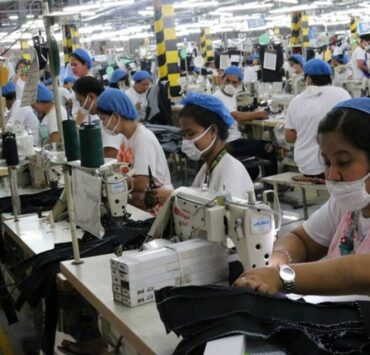Can Duterte take his oath in The Hague?

Interior Secretary Jonvic Remulla declared last Monday that “[w]e recognize the victory of former president Rodrigo Duterte. He was proclaimed by the Comelec (Commission on Elections) a day after the elections [with an] overwhelming mandate, so we recognize him as the mayor [of Davao City].” Remulla added that “[w]hat I can do is ask for permission from the ICC (International Criminal Court) to have our consul go to him so he can take his oath, because he has to take his oath to assume office.” As President Marcos’ alter ego, Remulla mouths the current government’s official stand.
Will the ICC allow Duterte to take his oath of office before a Philippine consul in its detention facility in The Hague? In the first place, is it proper for our government to exert effort to have Duterte take his oath? There’s a basket of issues involved in Remulla’s plan.
First, there has been no request made by Duterte or his family, enlisting the help of the Philippine government to have one of our consuls administer his oath in The Hague. Why is our government showing interest in having Duterte take his oath when the latter himself has not signified any interest? Is the Marcos administration pandering to Duterte supporters in light of election results showing that the Dutertes still enjoy support from a big chunk of the electorate?
Second, even if Duterte manages to take his oath, he will still not be able to discharge his duties as city mayor for obvious reasons. Remulla admits this when he raised the fact that Duterte has to be physically present in office to perform his duties, otherwise, the duly elected vice mayor, Duterte’s youngest son, Sebastian, has to take over. So why is the Marcos administration going out of its way to have Duterte take his oath when it will be an exercise in futility?
Third, our consuls can only administer oaths inside the Philippine Embassy in The Hague. They have no authority to administer oaths outside of embassy premises because they would be doing so outside of the Philippine jurisdiction. Our consuls are not walking Philippine territories, so to speak. An oath by Duterte before a consul inside his ICC detention facility will be vulnerable to questions of nullity.
Fourth, the Philippines is not a party in the case of “The Prosecutor v. Rodrigo Roa Duterte.” During the preliminary investigation into the situation of the Philippines, the Republic of the Philippines was an interested party recognized with the right to file submissions before the international court. In fact, the Philippine government formally sought the suspension of the investigation on the grounds that it was doing its own domestic investigation, among other reasons. When its request to stop the investigation was denied, the Philippines appealed to the ICC Appeals Chamber, but this appeal was likewise denied. After the denial of its appeal, the Philippines ended its participation in the investigation. It is now Duterte who is a party in the current case, and it is he alone who has the personality to make any request (including the matter of the taking of his oath) before the pretrial chamber and the eventual trial chamber that will hear his case. But why is the Philippines taking up the cudgels for him?
Fifth, the Philippines has withdrawn as a state party to the Rome Statute, and it’s no longer a member of the ICC. It was Duterte himself, during his presidency, who caused our country’s withdrawal from the ICC. If the current Philippine government makes the request to the ICC, it will not be a state party making the request, but a nonstate party pleading for accommodation by an international organization. It should be treated as a nonjudicial plea, similar to a diplomatic request that rests in the absolute discretion of the ICC.
Sixth, if the ICC allows Duterte to take his oath inside its detention facility, the ICC will open the floodgates to a heap of subsequent requests that would be premised on its recognition of the former president as an elected official. It can trigger future requests for Duterte to be allowed to perform his functions as a government official like the signing of documents, and conferring with his underlings in Davao City, among others. The ICC should consider the slippery slope that it will put itself on if it allows Duterte to take his oath of office.
Seventh, there is nothing in the Rome Statute and the ICC rules that gives Duterte the right to demand that he take his oath of office inside the ICC detention facility. There’s also nothing under international law that will justify giving him such a right. There has been no previous detainee who was accorded a similar right, to my knowledge, so the move will be a request to give Duterte extraordinary treatment.
The Philippine government is going out of its way to bestow special treatment for Duterte. When will it start giving the long-sought attention and long-deserved assistance to the tens of thousands of families who suffered horrific crimes during Duterte’s reign of terror?
—————-
Comments to fleamarketofideas@gmail.com





















Japan-PH: 70 years of relations woven in trust